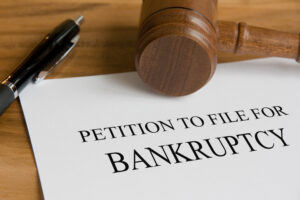
Common reasons a creditor may object include fraud, misrepresentation, theft, intoxicated driving, and other violations in Section 523 of the Bankruptcy Code. Call Winterbotham Parham Teeple, a PC at 800.400.9000 to discuss any concerns you may have regarding a creditor contesting your discharge. Keep in mind that we can start with a no-cost bankruptcy consultation.
Creditors May Initiate An Adversary Proceeding To Contest Your Bankruptcy Discharge.
Creditors typically have 60 days after your 341(a) Meeting of Creditors to launch an Adversary Proceeding and submit a formal complaint with the bankruptcy court to challenge your discharge. This initiates a “mini-lawsuit” in which creditors must demonstrate why your debt should not be canceled. Valid reasons to file an Adversary typically involve some form of fraud or misrepresentation and may include falsifying a credit application, incurring debt without the intention to repay, amassing debt immediately before declaring bankruptcy, and other justifications which evidence the debt was incurred via fraud or with malicious intent.
Respond To The Complaint To Prevent A Default Judgment.
When a creditor files a complaint against you, you only have so much time to react. A default judgment will be recorded against you if you fail to submit a timely response called an Answer. While a creditor may only request that their specific debt is not discharged; in some cases, creditors may object to the discharge of your debts in bankruptcy, so it is important to consult a qualified bankruptcy attorney to discuss the best course of action.
Settlement May Be An Alternative To Going To Trial
After you file an Answer to the complaint, there is a “discovery period” and the possibility of mediation. Motions can be filed, and a bankruptcy court trial is possible. Few cases proceed to trial, depending on the creditor’s motivation and the facts of the case. In some instances, settlement may be the best alternative to proceeding with the trial process as it can result in a better outcome and save on ongoing legal fees.
Even if it is uncommon, an objection to your bankruptcy discharge, i.e., filing an adversary case, might have serious consequences. This is one of the many reasons working with an expert bankruptcy attorney is essential.



